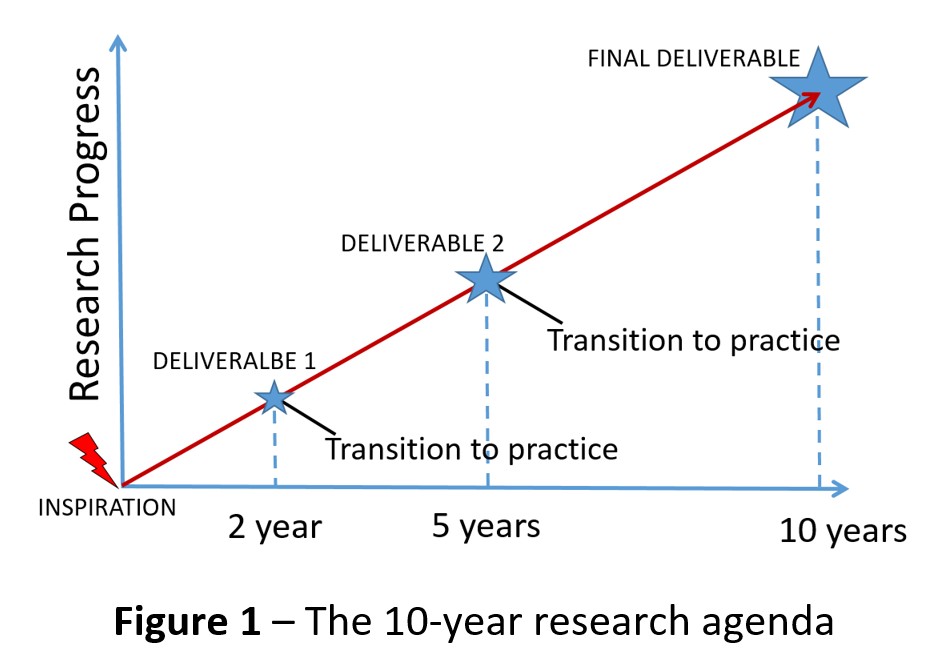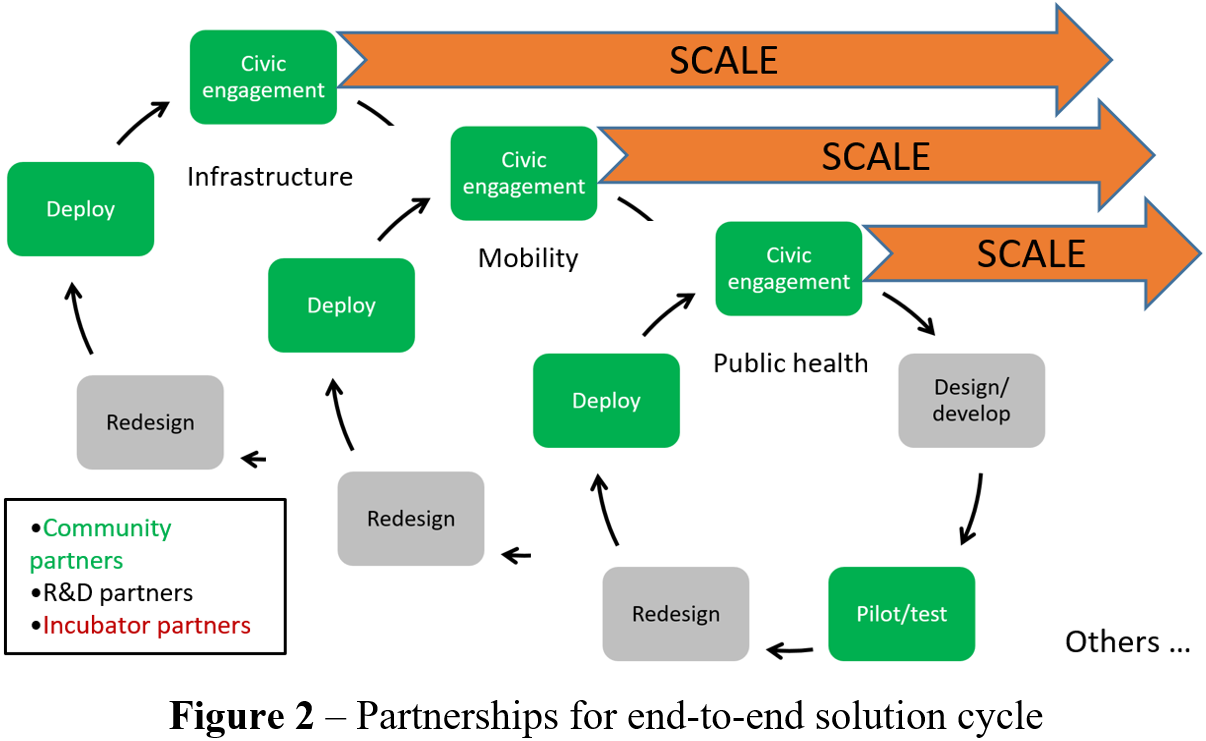Workshop Description
Workshop Announcement
Driven by the challenges as well as opportunities for high-impact research to advance the quality of life in under-connected  communities, the University of Virginia is convening the national SCC community for a conversation to define overarching challenges, explore opportunities, develop collaborations to address this important topic. Specifically, workshop discussions will be through the lens of how technology, communications, and networking can advance polycentric development. The meeting w will bring together researchers, practitioners, non-government and nonprofit organizations, industry partners, government representatives, and community stakeholders in the domain of Smart and Connected Communities.
communities, the University of Virginia is convening the national SCC community for a conversation to define overarching challenges, explore opportunities, develop collaborations to address this important topic. Specifically, workshop discussions will be through the lens of how technology, communications, and networking can advance polycentric development. The meeting w will bring together researchers, practitioners, non-government and nonprofit organizations, industry partners, government representatives, and community stakeholders in the domain of Smart and Connected Communities.
The workshop agenda will be organized around four driving principles:
- Topics primarily concerning how advances in technology, communications, and networking can support polycentric development of medium-sized, small, remote, rural communities. Workshop participants will explore how to pursue sustainable development of capacity, resources, and services in individual communities, instead of simply enabling communities to access services and resources in urban centers;
- Dialogs consist of equal contribution from policy, design, and technology perspectives. Viewpoints from social-behavioral, social-economic, and social-technical are especially emphasized;
- Presenters are identified by the ability to speak from experience. Discussions will be informed by real-life scenarios and case studies to drive concrete approaches and solutions; and
- Discussions aimed toward creating sustained partnerships to support stages of the solution pipeline - going from research to testing, deployment, and scaling.
Intellectual Merit
- This workshop will result in the following two primary intellectual contributions:
- Approaches, with concrete examples, on developing S&CC research agendas with high-impact out
comes to bridge the urban-rural gap; and - Characterization and design of a meaningful, accessible S&CC partnerships and testbeds that serve to support the SCC solution cycle from research to deployment and scale-up.

The workshop will also produce a workshop report, which includes a "playbook" based on practical case studies. The playbook will serve as a guide for early-career and new S&CC researchers to identify and pursue high-impact research activities.
Broader Impact
This workshop will convene a community of diverse stakeholders to the University of Virginia for an important and relevant discussion on bridging the urban-rural gap. In order to assure representation of multiple perspectives, the workshop organizers will prioritize participation of minority and underrepresented community members, and those that can speak from experience on the relevant challenges and opportunities. At least half of the participants will be from outside the academic community. Participation of early-career S&CC researchers and practitioners are especially emphasized to catalyze new partnerships and research communities in this important domain.
Smart and Connected Communities @ UVA
The University of Virginia is undertaking a major CPS/S&CC initiative which includes at least twelve new hires across the School of Engineering and Applied Sciences (SEAS). UVA is also investing in the LinkLab, a shared lab space co-locating approximately 12-16 faculty research labs. LinkLab faculty members will collaborate at an unprecedented level to solve real-world grand challenges. Beyond SEAS, other Schools, Institutes, and Centers at UVA are also focusing effort on research to advance urban-rural quality of life in the 21st Century. Examples of effort-in-progress include the School of Architecture's Next Cities Initiative, the pan-university Resilience Futures Institute, the Karen Rheuban Center for Telehealth, The Center for Transportation Studies and the Transportation Training Academy, and others.
Led by Prof. Jack Stankovic, Professor of Computer Science at the University of Virginia, UVA plans to host the 2017 National Workshop on Developing a Research Agenda for Connected Rural Communities (CRC17) at the Omni Hotel in downtown Charlottesville, VA from September 7-8, 2017.
In order to make meaningful progress through deep-dive discussions, the PI will partner with UVA's Karen Rheuban Center for Telehealth program as the vehicle for the discussion. The Rheuban Center, one of the most successful telehealth institutions in the country, serves the SW Virginia (and part of West Virginia) region to address healthcare needs of rural and remote communities. Examples of the Rheuban Center programs include the Health Appalachia Institute and the Mid Atlantic Center for Telehealth Resources Center. With over 150 sites offering services in more than 60 subspecialties, healthcare providers encountered over 53,000 patients and saved over 16 million miles of travel. The Rheuban Center participants will share short-term needs as well as long-term "wishes", instigating conversations to identify fruitful research opportunities and collaborations strategies.


